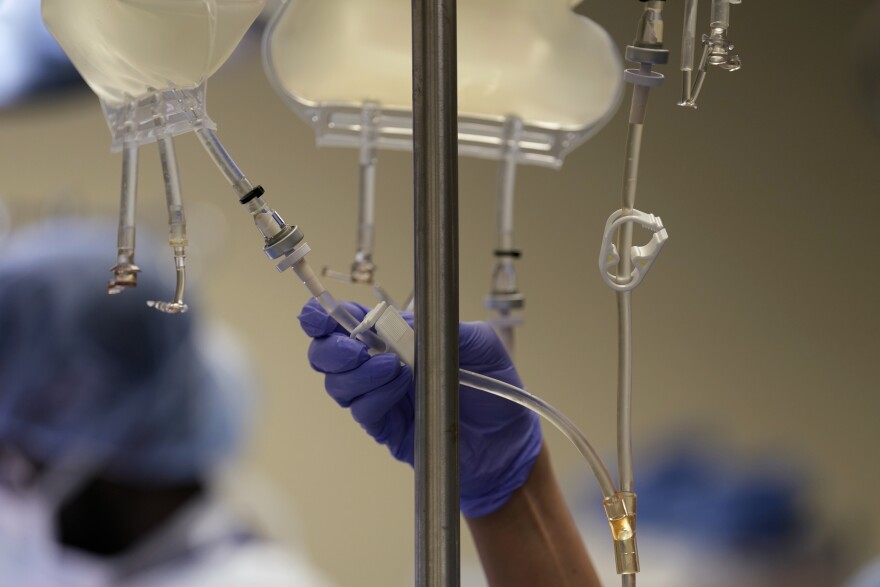Hospitals across North Texas continue to conserve supplies to avoid procedure delays as a nationwide IV fluid shortage tests systems across the country.
Flooding from Hurricane Helene in late September caused the company Baxter International to close its North Carolina manufacturing plant. It's responsible for 60% of the IV fluids used in the U.S., according to the American Hospital Association.
Stephen Love, president of the Dallas-Fort Worth Hospital Council, said the coalition of 90 North Texas hospitals has avoided canceling or delaying elective procedures through conservation efforts and alternative types of solutions and treatments.
“We’re hopeful that maybe by the middle of December or end of December, we’re going to be almost back to normal,” he said. “We’ve been able to weather the storm, if you will, in the shortage of IV by total cooperation among our clinical leaders.”
Dr. Joseph Chang, Parkland Health chief medical officer, said the hospital system is prepared to conserve fluids through the beginning of next year. Conservation efforts have ranged from eliminating automatic orders for fluids and asking attending physicians to use only as much fluid as needed.
“What we really asked them to do at the beginning of the shortage was to now ... really think about what kind and what amount of fluids they need," he said. "A lot of those conservation efforts have worked really, really well."
Parkland Health has been receiving about half of the supply it did before the hurricane, Chang said. The hospital system is using 60% of its supplies compared to before the closure.
Texas Health facilities have similarly taken proactive conservation measures and have utilized “alternative therapeutic options as clinically appropriate and in accordance with medical guidelines,” a spokesperson wrote in an email.
Representatives with Children's Health and UT Health East Texas told KERA News patients in their facilities have not experienced service disruptions.
Conservation efforts have varied at hospital systems across the country. Some systems across the country including Midland Memorial Hospital have announced delays for elective surgeries.
Baxter International announced Oct. 31 that operations had restarted at the North Cove, North Carolina, plant’s most productive manufacturing line sooner than expected. The line produced around half of the country's 1-liter IV solutions, which are the most used size among hospitals and clinics, before the hurricane.
The company aims to return to 90 or 100% allocations of certain IV fluids to hospitals by the end of the year. Baxter International is scheduled to provide its next update on Thursday.
Federal agencies have also stepped in to help Baxter International reopen, ship supplies to hospitals and increase IV fluid supplies from other providers — including temporary authorization from the Food and Drug Administration for IV fluids and dialysis products from other countries.
Kailey Broussard is KERA's health reporter. Got a tip? Email Kailey at kbroussard@kera.org.
KERA News is made possible through the generosity of our members. If you find this reporting valuable, consider making a tax-deductible gift today. Thank you.
Copyright 2024 KERA


